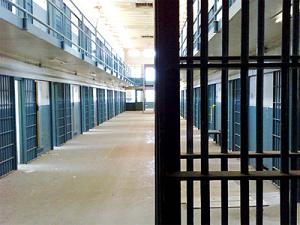Persecution and Conflicts Fuel Illegal Immigration. Crossing the Mediterranean From North Africa
Can the continued tragedy of Mediterranean immigrants be prevented?

At least 300 migrants are feared to have drowned after attempting to cross the Mediterranean Sea from North Africa this week in rough seas, the UN says. This follows other previous death that would have been prevented if the root causes of the illegal immigration are addressed rather than addressing the symptoms of the illegal immigration.
UN officials and the European Union have continued to call this unfortunate loss of life as a tragedy, unacceptable, but in reality they have done little or nothing to address this modern human voluntary massacre. The UNHCR official Vincent Cochetel said it was a “tragedy on an enormous scale”. The Mediterranean Sea has become an international cemetery for not only economic immigrants but also the most persecuted human beings from Countries like Eritrea, Gambia, or conflict countries like Syria, Iraq just to mention a few.
The few lucky Survivors brought to the Italian island of Lampedusa said they were forced to risk the bad weather on ill-equipped vessels by human traffickers in Libya. These illegal immigrants were rescued from two of four dinghies that got into trouble after leaving Libya for Europe on Saturday. The life before and after boarding the human traffickers boats are unbearable because those rescued on Wednesday morning had spent days drifting without food or water in two of the other dinghies – with each said to be carrying more than 100 people.
While some wreckage of boats carrying the illegal immigrants might be seen, others disappear at sea, it is estimated that almost the majority of boats that set off to Europe, just a tiny fraction arrive, and the rest disappear at the sea.
Persecution and Conflicts fuel illegal immigration
“This is a tragedy on an enormous scale and a stark reminder that more lives could be lost if those seeking safety are left at the mercy of the sea,” Mr Cochetel said in a statement. While the International community and other humanitarian agencies cannot stop conflicts, they can never the less intervene to explore the causes of these mass illegal immigrations and come up with a road map on the future plan of action.
The Mediterranean human tragedy is not European or Italian problem but an international problem that the World is facing, like the global warming, human illegal immigration has its roots causes which should be addressed by the combined effort of the international community as a whole.
As Pope Francis acknowledged while addressing the European Parliament that Europe cannot afford to see the Mediterranean Sea to become a vast cemetery , so the World cannot afford to keep a deaf ear on the continued mass loss of human life. In a speech to the European Parliament last year, Pope Francis called for a “united response” to the issue, warning that the Mediterranean could not be allowed to become a “vast cemetery”.
Similarly, Justin Forsyth, the chief executive of Save the Children, said: “How many of these tragedies can the international community watch from the shores before we are morally compelled to respond?”. “It is not acceptable to prioritise border control over life-saving rescue missions,” he added.
Indeed, moral life saving should override other excuses because the Mediterranean Sea has become the Sea of death. The European Union and the whole of international community have failed to acknowledge that despite stepping up surveillance and sea patrols through the EU’s Frontex border patrol agency, they need to provide more development aid and trade opportunities to some of the countries migrants are leaving.
We have learnt from experience around the world that border control is not a silver bullet. A portfolio of policies is required to reduce irregular migration, certainly including border control, but combined with addressing the root causes of conflict and poverty, combating smuggling and trafficking, effective migration management and return, and the regulation of labor markets.
The EU law on asylum seekers, the Dublin Regulation, which determines that dealing with asylum requests, is the responsibility of the first EU state through which asylum seekers pass has made matters worse for the frontline EU States like Greece, Spain, Italy, and Malta. And countries like France, Germany, and the UK, point out that they already receive the lion’s share of asylum applications in Europe. As a result they have indicated a willingness to support capacity-building in states on the southern periphery, and to provide them limited financial assistance, but not to accept more migrants.
In the absence of a coordinated EU approach, migrants — and their smugglers — will continue to target countries like Greece, Italy, and Spain as entry points; they will remain clandestine even if they may have a strong asylum claim; they will continue to work in the informal labor market or turn to crime to survive; and their rights will not be recognized or respected. Indeed, this will not in the long term be in the interests of the European Union, the EU and US, should therefore help to address acute crisis in countries like Eritrea, from where many of those who drowned earlier this month and have been intercepted since came; combines with chronic instability and poverty in many sub-Saharan African countries, unpredictable transitions in North Africa, and the unfolding Syrian and Iraq disaster, to translate into growing pressure on Europe’s borders.
Unless there is comprehensive policy response, a coordinated EU and international community approach, and the political courage to confront irregular migration, addressing the African dictators who are not only changing the Constitution to extend their brutal rule, but also oppressing and suppressing their Citizens rights, Europe and other developed World’s immigration nightmare has only just begun.
Frank Mwine Mugisha, International Legal and Political Analyst

